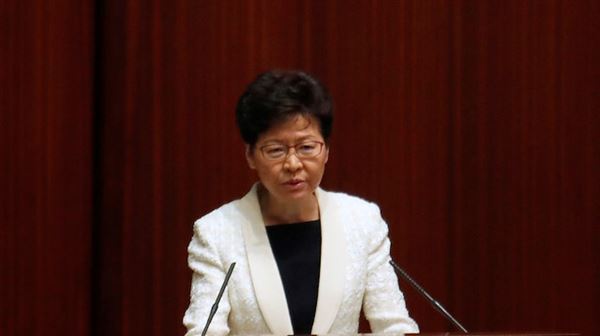Pro-democracy candidates will stand in almost all 452 seats in Hong Kong's upcoming local elections, encouraged by four months of anti-government prot
Pro-democracy candidates will stand in almost all 452 seats in Hong Kong’s upcoming local elections, encouraged by four months of anti-government protests, with the outcome of the November poll a barometer of support for the city’s embattled government.
Such votes have previously attracted little fanfare and been dominated by pro-Beijing candidates. But a summer of unrest has infused a newfound significance in the poll and prompted a record number of candidates and voters to register.
“The months of protests have galvanized many people, particularly the younger generation who were not bothered to register or to vote in the past,” said veteran pro-democracy politician Emily Lau. “This time it is different,” she said.
Democracy campaigner Joseph Cheng told broadcaster RTHK that the movement could now field candidates in “more or less” every constituency after struggling for numbers only a few months ago.
High profile candidates such as democracy activist Joshua Wong are among the record 1,104 people running for 452 district seats. A record 4.1 million Hong Kongers have enrolled to vote.
The Nov. 24 election does not directly shape the makeup of the city’s powerful Legislative Council, though the district councils control local spending and serve as a training ground for up-and-coming politicians.
A strong showing from candidates sympathetic to the protesters would also be a demonstration of popular support and help legitimise a movement the government has sought to dismiss.
It could also boost representation in the 1,200-strong committee that selects Hong Kong’s chief executive, about a tenth of which is drawn from district councils.
“People in Hong Kong have begun to tune in and see this election as an additional way to articulate and express their views on the state of Hong Kong in general and the government of Carrie Lam,” said Kenneth Chan, associate professor in the Department of Government and International Studies at Hong Kong Baptist University.
“It’s a very heated event. It’s high voltage politically,” he said, adding that the tenor of the campaign, which has included violent attacks on some of those involved, already feels very different to previous years.
Subway operator MTR Corp Ltd has for the first time banned election advertising in stations and railcars, deeming on Thursday that the content could provoke conflict and pose a risk to the safety of passengers and staff.
Authorities have flagged a strict adherence to electoral rules allowing the exclusion of candidates deemed to be advocating Hong Kong’s independence from China.
“The worst-case scenario would be for the government to postpone or consider cancelling the election,” Chan said. It would mean total blockage of a legitimate, much-expected, institutionalised way of expressing opinions. It would be terrible.”
Two districts which have both seen violent clashes during demonstrations, Sha Tin and Yuen Long in the semi-rural New Territories region, have drawn the most candidates.
They seem evenly poised: about a quarter of candidates are pro-democracy, a quarter pro-establishment and the remainder standing as independents, with their allegiance either flexible or unclear, a Reuters analysis of their platforms shows.
Pro-establishment parties, though, have polled poorly in recent opinion surveys.
And, says James Tien, honourary chair of the pro-establishment Liberal Party, they face an extra challenge because newly enrolled voters are focused almost exclusively on protest politics and not local matters.
